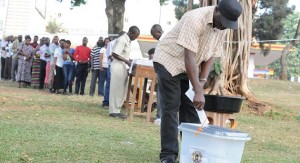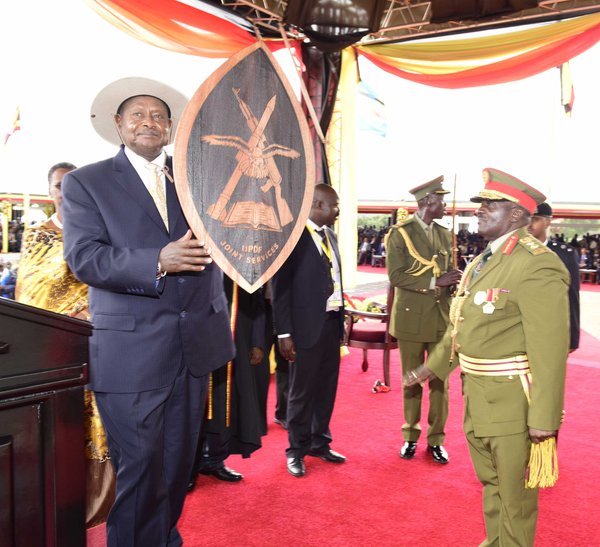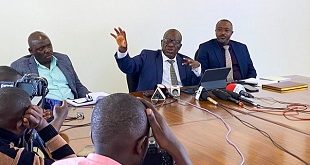
FEBRUARY: MUSEVENI WINS ELECTION, AGAIN
February 18 – Ugandans woke up to vote for president and members of parliament in an election marked by heavy security deployment and delayed delivery of voting materials and late announcement of results in some areas. The main opposition candidate, Kizza Besigye, of the Forum for Democratic Change (FDC), was on arrested late in the day in the Kampala city suburb of Naguru, while attempting to force his way into what he said was a ballot-stuffing house run by the intelligence agencies.
Besigye accused the Electoral Commission of deliberately favouring Museveni and the head of the Commonwealth Observer Group, former Nigerian President Olusegun Obasanjo, called the long delays “absolutely inexcusable.”
February 20: President Yoweri Museveni was declared winner of the February 18, 2016 presidential election. Museveni; who was the ruling NRM’s flag-bearer won with 60%, followed by FDC’s Kizza Besigye with 35%. Former Prime Minister Amama Mbabazi was a distant third with 1.3% of votes cast. The other five candidates got less than 1% of the votes cast. Across the county, celebrations for NRM victory were muted amidst tight security. The announcement found Museveni’s main challenger Kizza Besigye under house arrest at his home in Kasangati.
Ten days later on March 01, one of the losing candidates; former Prime Minister Amama Mbabazi, filed a petition in the Supreme Court challenging Museveni’s re-election on allegations of vote-rigging and failure to comply with the electoral laws.

The case was heard starting March 07 by a full coram of Supreme Court judges led by the Chief Justice Bart Katureebe and including justices Jotham Tumwesigye, Esther Kisaakye, Stella Arach-Amoko, Augustine Nshimye, Faith Mwondha, Rubby Aweri Opio, Eldad Mwangusya and Lillian Tibatemwa Ekirikubinza.
On March 9, a big story broke about an alleged break into the offices of the lawyers of JPAM Muhamad Mbabazi and Fred Muwema. The duo told the media how they had lost laptops and other documents related to the JPAM petition.
On March 14, in an unprecedented move, the court allowed a group of Makerere University law lecturers to joining the case as amicus curie (friends of court).
On March 31, the Supreme Court dismissed the Mbabazi petition and ruled that Museveni was lawfully elected.
On May 12 Museveni was sworn in for the sixth time as President of Uganda. Just a day before, a video had gone viral of his main challenger Kizza Besigye being sworn in as the rightful president. He said he and no Museveni had won the election.
 The Independent Uganda: You get the Truth we Pay the Price
The Independent Uganda: You get the Truth we Pay the Price


